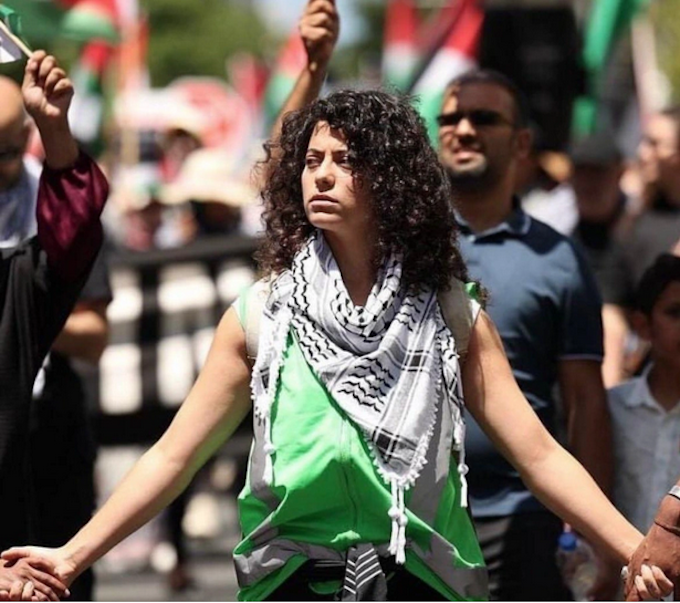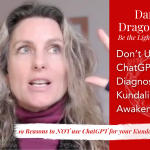Context (the horror, the facts you need to know) on what NZ has done to stop genocide.

On 7 October 2023, Hamas launched a coordinated attack into southern Israel — killing civilians, storming towns, taking hostages. The Israeli security apparatus responded with ferocity. In the chaos, some Israeli troops even ended up killing their own civilians, although those deaths continued to be atrributed to Hamas.
This was only the latest episode in almost 80 years of occupation and oppression of the Palestinian people.
Then Israel invaded Gaza: sustained bombardment, ground incursions, mass displacement, infrastructure destroyed. Hospitals were systematically bombed out of existence. Medical workers target and killed. Journalists deliberately silenced. Children – so many children – died under rubble. The health system collapsed. The blockade tightened. Famine started. The death toll, overwhelmingly civilian, spiraled.
International organisations, human rights groups and many legal experts now warn that the scale and pattern may amount to genocide. No, f*ck that. This IS genocide, and always has been genocide.
And all of this has been livestreamed into our feeds for almost two years.
The UN, Amnesty, Human Rights Watch, and even the International Court of Justice have raised alarms: the scale and intent amount to genocide.
This is mass suffering in real time that we COULD end, if we had the will to do so.
So: what has NZ’s government done to stop genocide— and how long did it take?
What New Zealand Has Actually Done to Stop Genocide
Here’s your list, with delays, dithers, and weak tea mixed in:
- 27 Oct 2023 — First UNGA vote for a humanitarian truce. NZ backed a ceasefire call, the only Five Eyes country to do so. Canada and Australia abstained; the US voted against. RNZ
- 12 Dec 2023 — Supported a second UNGA ceasefire resolution. Again, NZ voted in favour. But this was two months after the bombs began falling on Gaza’s children. MFAT
- Dec 2023 — Joined a Canada–Australia–New Zealand leaders’ statement calling for a “sustainable ceasefire.” Nice words, slow action. RNZ
- 29 Feb 2024 — Travel bans on violent West Bank settlers. Took almost five months of settler pogroms before NZ barred a handful of extremists from entering. By then, the US and EU had already imposed similar bans. Beehive.govt.nz
- 19 Sep 2024 — Voted at UNGA on Israel’s occupation. Supported the resolution, but again, this was symbolic — no teeth. MFAT
- 11 Jun 2025 — Finally banned two Israeli cabinet ministers (Smotrich & Ben-Gvir). NZ joined Australia, Canada, the UK and Norway in travel bans — a year and eight months into the genocide. Other states had moved faster. Beehive.govt.nz
- 13 Jun 2025 — Supported another UNGA ceasefire resolution. Nearly 600 days into the slaughter, NZ was still stuck in symbolic votes. NZ Mission to UN
- Jul 2025 — Signed on to multilateral statements saying “the war in Gaza must end now.” At this point, it was beyond obvious — but NZ’s government still hadn’t gone further than statements and travel bans. Beehive.govt.nz
- Humanitarian funding: NZ kept its modest $1m/year commitment to UNRWA when others (US, Canada, UK) froze funding. Credit where it’s due — but that’s the bare minimum. MFAT, Human Rights Watch
What’s missing? No boycotts. No blockades. No suspension of trade. No arms embargo. In fact, MFAT admits there’s no blanket prohibition on exporting to Israel. Everything is case-by-case. MFAT
Plus, no impassioned, heartfelt, standing up and speaking up action. That’s what can REALLY move the dial.
That’s what REAL leadership looks like — think Martin Luther King Jr. in “I Have a Dream”, Sojourner Truth in “Ain’t I a Woman?”, Nelson Mandela’s inauguration speech, Severn Cullis-Suzuki at the Earth Summit, or John F. Kennedy in “Ich bin ein Berliner.”
These speeches worked because they weren’t just rhetoric — they carried moral clarity, emotional resonance, and arrived at moments of historic tension where words could shift hearts, policy, or even the direction of nations.
The most recent example of this is the 16-year-old Nepali student Avishkar Raut, whose high school graduation speech in March 2025 helped ignite the Gen-Z–led protests that erupted after a government social media ban, escalated into mass demonstrations and the storming of parliament, left more than 70 people dead, and ultimately forced Prime Minister K. P. Sharma Oli to resign.
Impassioned speeches spoken with moral clarity can inspire massive change. Here’s what our NZ ‘leaders’ have said: The dithering & the dallying
- Christopher Luxon, talking about recognizing Palestine: “Well we think a two-state solution is the only way forward … that’s why we keep saying it’s a question of when not if.” RNZ
On aiding Gaza: “What we’re seeing … is Israel not listening to the global community at all. … We have called these things out consistently, time and time again.” RNZ
On recognizing Palestine: “That decision is independent of other countries … recognising a Palestinian state was a matter of when not if.” RNZ
Earlier: Luxon “has spoken in strong terms” personally, e.g. calling Netanyahu “lost the plot.” The Spinoff
Luxon demanded Israel allow “unfettered access” for humanitarian agencies. NZ Herald - Winston Peters / NZ foreign affairs: On the travel bans (2025): “Our action today … is targeted at two individuals … who are using their leadership positions to actively undermine peace … we are imposing travel bans …” The Beehive
On Israel/Palestine policy more broadly: Peters, when hit by Seymour’s comment, warned Seymour to stick to his lane: “That’s not the government’s position … the government’s position is articulated by the Minister of Foreign Affairs … someone is talking out of his field.” RNZ
Peters has refused to commit to recognition: “Cabinet has made an in-principle decision … though it won’t be revealed until I deliver a speech in the general debate at the UNGA.” RNZ+1 - David Seymour (ACT leader, coalition partner) — his comments and reactions: On recognizing Palestine: “I’m not going to recognise a state that’s currently weaponising hostages, holding people for years on end … who would recognise that?” RNZ
He pressed to be consulted on UN votes: “I’ve expressed … it would be good if we could chat about this more in the future.” NZ Herald
What the NZ Government Could Do to Stop Genocide
New Zealand could go further — much further — and others already have.
- Recognise Palestine. Over 140 countries have. Ireland, Spain, Norway and Slovenia did it in mid-2024. NZ is still “waiting.” RNZ (Note: an announcement is due on Sept 27.)
- Pass a general sanctions law. Right now, NZ only has a Russia-specific framework. Cabinet could legislate a permanent regime to sanction Israeli officials, companies and banks fuelling war crimes. MFAT
- Impose an arms embargo. Several European states have already suspended arms sales. NZ could declare a “presumption of denial” for all military and dual-use exports. MFAT
- Intervene at the ICJ. South Africa’s genocide case against Israel is ongoing. Other states have filed interventions. NZ hasn’t. ICJ
- Differentiate trade. Ban settlement goods or at least force clear labelling. Norway and Ireland have led here. HRW
- Expand bans. Add more Israeli officials, military units, and companies to the travel/financial blacklist. Slovenia went as far as targeting Netanyahu himself. Al Jazeera
- Scale up humanitarian aid. $1m a year to UNRWA barely scratches the surface. NZ could multiply this. MFAT
Bottom Line
Nearly two years into the genocide, New Zealand has issued symbolic votes, a few travel bans, and the bare minimum of aid. Meanwhile, Gaza burns. Kids die. Journalists die. Doctors die. And our government dithers.
Other countries have recognised Palestine, imposed arms embargoes, blocked settlement goods, and backed the ICJ case. We’ve mostly sat on the sidelines.
So the question is: when will New Zealand stop wringing its hands and actually act to stop genocide?
Right now – a flotilla of humanitarian boats, the Global Sumud Flotilla, is sailing toward Gaza and it has come under reported drone attacks and explosions while in international waters near Greece and Crete.
Activists aboard say multiple vessels were hit with incendiary devices or flammable liquids, their radios jammed and communications hijacked (RNZ).
Among those aboard are three New Zealanders: 18-year-old Sam Leason, Yousef Sammour (a New Zealand–Palestinian), and Rana Hamida, the daughter of a Palestinian refugee from the Nakba (RNZ).
In response, New Zealand’s Ministry of Foreign Affairs and Trade (MFAT) acknowledged it is “aware of reports that drones have been attacking some boats participating in the Global Sumud Flotilla.”
MFAT reiterated that it holds the safety of New Zealanders as paramount, and has formally communicated with Israel that any Kiwis involved should be treated according to international law.
The ministry also pointed out that New Zealand maintains a long-standing “do not travel” advisory for Gaza, which explicitly warns against attempts to enter Gaza by sea (including via flotillas) in violation of Israeli naval restrictions (RNZ). Activists say it is disingenuous to call it ‘Israeli naval restrictions’ when it is an ‘illegal blockade’.
Talk about hand-washing. ‘Oh, we warned them it’s dangerous to head to Gaza,’, implication being ‘they should know better, and it’s their fault’.
No. Israel is consistently, repeatedly, ignoring international law – much of which was established post-holocaust horror – in favour of committing horrendous suffering against Palestinians, obstinately seeking ‘security’ from the very people they’ve displaced and persecuted for nearly 100 years.
It’s bullsh*t.
New Zealand has an opportunity here to stand up, speak up and DO something to prevent this horrendous suffering and stop genocide.
(Here’s what you can do – email your MP and the Govt and ask them to ACT.)
Why Has NZ (and Most of the West) Been So Weak on Israel?
It’s not because the facts are unclear. The bodies of children pulled from rubble, the ICJ proceedings, the UN’s repeated votes, the condemnations from Amnesty and Human Rights Watch. The evidence of mass atrocity is overwhelming. Stop genocide already!
So why does New Zealand drag its feet? Why do Canada, Australia, the UK, the US and so many others issue words while refusing meaningful action?
- US alignment and Five Eyes pressure
- New Zealand’s foreign policy is tightly bound to the US and its intelligence-sharing club, the Five Eyes (NZ, Australia, Canada, UK, US). Washington is Israel’s staunchest defender, vetoing UN resolutions and pouring in military aid. Breaking from that line risks diplomatic friction and being seen as unreliable by our “allies.” NZ’s vote for the October 2023 humanitarian truce (it was the only Five Eyes member to support it) was a rare breach, and it stood out.
- Fear of economic and diplomatic retaliation
- Countries that move against Israel or openly support Palestine often face consequences: diplomatic downgrades, accusations of antisemitism, or even trade reprisals. NZ relies heavily on smooth international trade flows (our economy is export-driven: dairy, meat, wine). Leaders may fear sanctions, boycotts, or losing leverage in bigger negotiations if they cross Israel’s allies.
- Domestic political caution
- In NZ, both Labour and National governments have treated Israel/Palestine as a “delicate” issue. Leaders calculate that the domestic political upside of strong action is small, while the risks of blowback (media attacks, donor anger, accusations of bias) are high. Luxon’s “when not if” line on recognising Palestine is classic hedging: say enough to look principled, without committing. Winston Peters has also scolded coalition partners (like Seymour) for “talking out of their field,” underlining how carefully Cabinet wants to control the messaging.
- Weaponisation of antisemitism accusations
- Around the world, governments and public figures who criticise Israel are swiftly accused of antisemitism. For politicians and diplomats, this charge is career-killing. Many governments have grown wary of saying or doing anything beyond the safest possible language for fear of being tarred as racist.
- The shadow of the Holocaust and guilt politics
- Western nations carry historic guilt for failing to prevent the Holocaust and for their own antisemitic pasts. That guilt often translates into a reflexive political shield around Israel, no matter its policies. Politicians don’t want to be remembered as being on the “wrong side of history” by appearing to abandon the Jewish state.
- Fear of precedent
- If New Zealand gets serious about sanctioning Israel for international law breaches, it raises the bar for every other conflict. Would we then have to sanction India for Kashmir, or China for Xinjiang, or the US for Iraq? Governments worry about opening the floodgates of accountability. Easier to do nothing, or restrict action to the “safe” villain (Russia).
- Israel’s strategic lobbying and narrative control
- Israel invests heavily in shaping global narratives. From “self-defence” framing to relentless lobbying through embassies and pro-Israel groups, it ensures that decision-makers feel pressure to tread softly. NZ is not immune — Israeli diplomats have directly pushed back on Luxon’s comments and pressured MFAT behind the scenes.
Bottom line
New Zealand’s weakness is not about lack of evidence or compassion. It’s about fear: fear of offending the US, fear of economic retaliation, fear of political attacks at home, fear of being smeared as antisemitic, fear of setting precedents that would force consistent accountability across the board.
Meanwhile, Gaza burns and Palestinians continue to die.. And history will remember not just the perpetrators, but the governments that stood by wringing their hands.
This is what happens when we let FEAR run the show.
F*ck fear. Master that motherf*cker…!
All pf which begs the question – where in YOUR life do you let FEAR rule?
Because the personal is the political is the personal.
If we want the NZ Government to act differently – to no longer be ruled by fear – then WE also have to ensure that WE are not ruled by fear.
Pondering this, pondering this.
Article written by KL Grant with research support from ChatGPT. Please email me if any facts need correcting.




 How I was the source of my own suffering when I had an intense Kundalini Awakening (is this you too?)
How I was the source of my own suffering when I had an intense Kundalini Awakening (is this you too?)